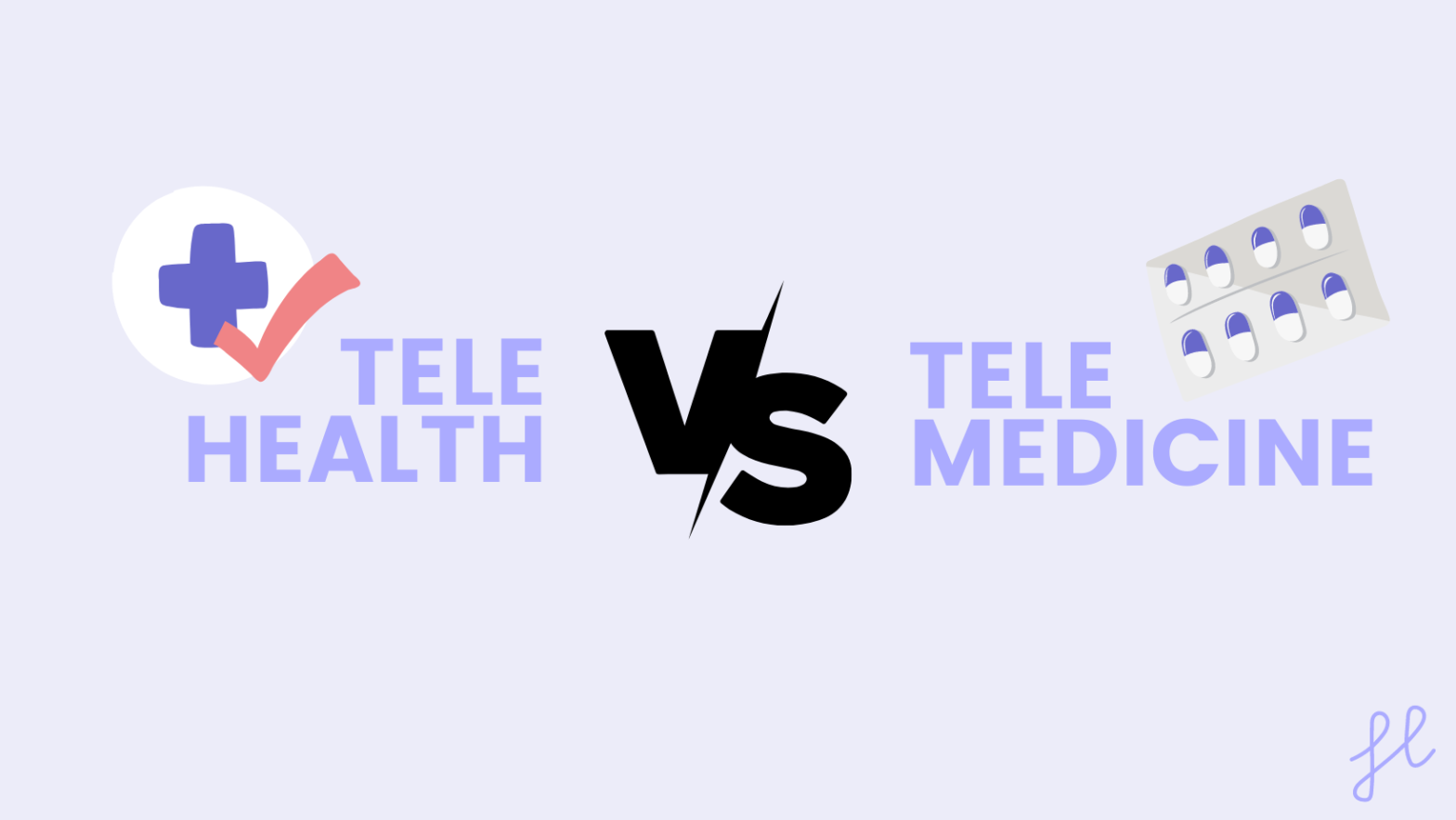Traveling to your doctor’s appointment might be a burden due to long commutes, difficult parking, and extended wait periods if you live in a big city.
Likewise, it can be difficult for people who live in rural locations to see a doctor because of issues like significant driving distances, a lack of accessibility to specialists, and lengthy wait times.
The presence of Covid-19 has challenged the healthcare system and technology to break down barriers and limitations with the rise of Telehealth and Telemedicine.
As new communication technologies, these terms are still being used interchangeably. To get the most out of these two, let us explore the main differences between Telehealth and Telemedicine in this post.
Telehealth Vs. Telemedicine
Let us get to know each of them below.
Although telehealth and telemedicine services are not entirely new, their use has recently increased, so you may now hear the phrases more frequently. Each of these words denotes a distinct method of delivering healthcare using currently available technologies or a distinct field of medical technology.
What Is Telehealth?
Telehealth is a subgroup of E-Health, which encompasses health systems administration, training and education of healthcare professionals, and distribution of health information to professionals online.
It covers a wide spectrum of remote healthcare services to provide patient care and enhance the healthcare delivery system. It frequently involves non-clinical operations such as administrative meetings, continuing medical education, and professional training.
It supports long-distance healthcare, patient and professional education, public health, and health administration through electronic information and medical apps. Video conferencing, store-and-forward imaging, video streaming, and wireless connectivity through a healthcare app like Hostalky are examples of telehealth technology.
What Is Telemedicine?
Because it exclusively deals with the provision of medical solutions from a healthcare provider in one area to a patient in another location, telemedicine is considered more specialized. It aims to improve patient health by enabling two-way real-time communication or monitoring.
People who reside in remote, disadvantaged communities and developing nations greatly benefit from this service. This is also a viable alternative for individuals with impaired immune systems or mobility problems.
An internet-connected phone or another device with a camera is required for a telemedicine session with your doctor.
When Should You Use Telehealth And Telemedicine?
There are many different situations when telehealth and telemedicine are appropriate.
You can use telemedicine to speak with a medical expert if you have health issues or symptoms like vomiting, flu, diarrhea, allergies, infections and rashes, conjunctivitis, urinary infections, and other issues that can be discussed in healthcare apps.
Telehealth is a tool that specialists can utilize to help their patients. For instance, a doctor might want to inspect your incision through video chat after surgery.
You can talk with your doctor’s office about telehealth possibilities to determine if this might be a possibility for you if you have mobility issues or live a long way from your doctor.
For healthcare professionals, you can use telehealth to communicate with a fellow nurse or doctor. Healthcare apps like HosTalky are designed to improve communications and be more effective in the healthcare industry.
Conclusion
Telehealth and TeleMedicine may have the same goal of delivering a good healthcare system to people, but it both serves different purposes.
Long-distance medical treatment is widely performed via telecommunications technology, referred to as “telehealth.” It also covers employing technology for non-clinical tasks like meetings or continuing education for healthcare personnel.
Contrarily, telemedicine is the term that describes the use of telecommunications technology expressly to deliver healthcare services to patients.
Do you think these technologies are helpful? Share your thoughts below!
Let us stay connected in our social media accounts for more healthcare discourse. Follow us on Facebook, Instagram, and LinkedIn now!
